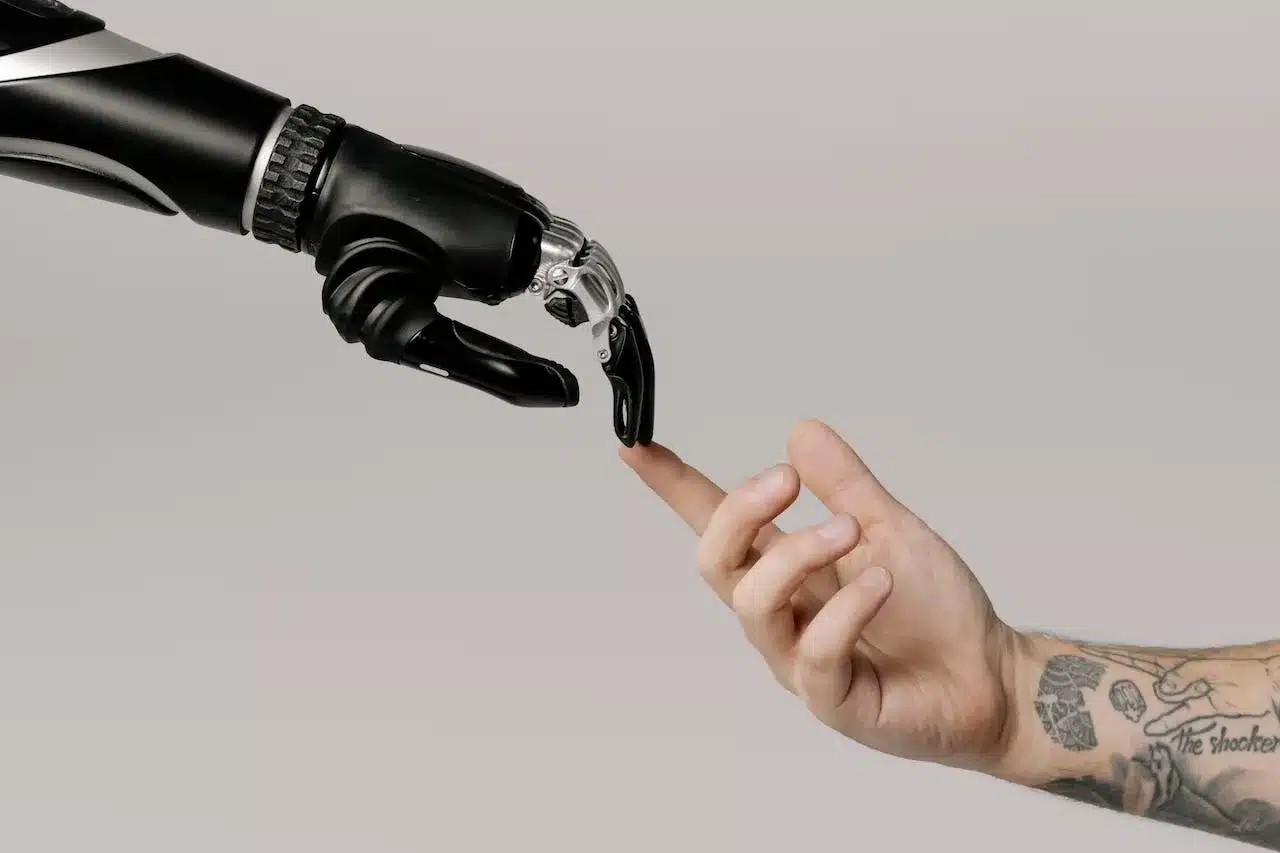Table of Contents
ToggleArtificial Intelligence (AI) stands at the cutting edge of human innovation, promising a more efficient future, informed, and maybe even a bit more inviting. From healthcare to the job market, the tentacles of AI’s influence are as far-reaching as they are potent. But as AI grows from an abstract notion into an omnipresent force in modern life, its ethical implications have come under scrutiny. How should we interact with the AI that increasingly dictates our lives? Should it be embraced as an infallible guide or viewed with caution, conscious of the inherent biases and potential for harm?
In this exploration of AI in everyday life, I advocate for a careful balance between the utilization of AI’s capabilities and the retention of human judgment. While AI undoubtedly brings value to our decision-making processes, we must not lose sight of our ultimate responsibility as the creators and controllers of these systems.
Understanding AI's Role
For millenniums, tools have been extensions of our judgment, knowledge, and creativity. AI is no different—it is a tool, albeit a sophisticated one that can sift through vast quantities of data at unimaginable speeds. But it is not conscious, not autonomous, and not capable of empathy or moral consideration, characteristics that are the foundation of human judgment.
The Importance of Human Judgment
No algorithm, no matter how intricate, can replace the subtle complexity of human insight. It can point us in a direction and even offer a prediction, but it cannot fully consider the unique context of each situation. As AI systems become increasingly sophisticated, the precision of their predictions may eclipse our own. However, in areas where stakes are high, such as the criminal justice system or medical diagnosis, the incorporation of human judgment is not just valuable—it is essential.
AI's Impact on Decision Making
There is a striking contrast in how humans and AI process information. While AI is designed to make data-driven decisions, humans often incorporate a wide range of factors, including intuition and ethical considerations, into our decision-making process. But what happens when we hand over this vital task to machines?
Benefits and Limitations of AI
We have seen the transformative potential of AI in areas such as predictive analytics, where it can sift through vast data sets to identify patterns and correlations that would escape human attention. In scenarios where sheer volume outstrips human capacity—a clinical setting, for instance—AI can process and evaluate data at a scale and speed that would be impossible for a human team.
However, this data-driven approach is only part of the equation. It’s essential to recognize that AI is only as good as the data it’s fed and the models it’s based on, and these can often embed societal biases, either inadvertently or by design.
The Potential Consequences of Relying Solely on AI
The more we relinquish our decision-making to AI, the more we risk homogenizing our response to complex problems. If we allow AI to make the call on who is given a job, who is granted a loan, or who is released from prison, we risk cementing and potentially exacerbating existing societal inequities. Perfectly ‘logical’ decisions made by AI systems could inadvertently perpetuate discrimination or unjust outcomes, often under the guise of ‘efficiency.’
The Ethical Dilemma
The heart of the AI ethics debate lies in an enduring human struggle: the perennial clash between expedience and virtue. In the digital age, this dichotomy manifests as the tension between AI’s potential to streamline processes and the values that should guide our decisions.
Balancing Efficiency and Human Values
Yes, AI can streamline our lives, but at what cost? Its ‘efficiency’ should be scrutinized against the backdrop of our societal values—fairness, equality, and justice. A case in point is the use of AI in law enforcement, where facial recognition technologies can perpetuate racial profiling. Efforts to automate recruitment processes have also been criticized for favoring certain demographic profiles, potentially nurturing a biased workforce.
Human judgment is not just about making ‘good’ decisions; it’s about making decisions for the greater good that align with social and moral principles. We, as a society, must decide where to draw the line between expediency and ethical considerations.
The Need for Human Oversight and Responsibility
As we delegate more decisions to AI, we take on the role of ‘stewards’ of this technology. Just as one would oversee a child learning a new skill or maintain a carefully cultivated garden, we must approach AI with vigilance and responsibility. There must be a human in the loop—someone who is accountable, and who can explain and challenge the outputs of these systems. We cannot afford to shirk our responsibility to understand and regulate these tools, lest they become our masters rather than our servants.
Case Studies and Examples
For the skeptics who view AI’s potential perils as hyperbole, let us bring reality into the equation.
Real-Life Scenarios Highlighting Ethical Implications of AI
Take, for example, AI’s increasing role in the hiring process. Several high-profile cases have drawn attention to how AI-driven systems can inadvertently favor one group of applicants over another based on characteristics such as gender or race. The same biases are replicated in financial services, with instances of AI systems unfairly denying loans or setting discriminatory rates.
In healthcare too, there have been stark warnings against the uncritical adoption of AI. Misguided reliance on AI for diagnosis can lead to missed opportunities or misdiagnoses, with potentially fatal consequences. Even the notion of robot-assisted surgeries, with AI making split-second decisions, is a source of ethical debate, particularly regarding the margin for error and the long-term implications of less human input.
The Way Forward
The challenges that AI presents are not insurmountable, but they demand more robust frameworks to govern its deployment and use.
Establishing Guidelines and Regulations
Transparent and enforceable guidelines must be established to ensure AI serves humanity’s interests. Regulations should require developers to incorporate accountability and transparency into AI systems, to be open about the data used to train them and to allow for meaningful human oversight.
Promoting Transparency and Accountability
Transparency should be non-negotiable. Users of AI systems, especially those tasked with decision-making, must be made aware of the basis on which AI makes its suggestions. This transparency would also pave the way for fostering public trust in these systems. Moreover, we should hold developers and users of AI accountable for the results that their technology produces. This would encourage a culture of responsibility where the negative impacts of AI can be mitigated.
Conclusion
In embracing AI, our aspiration should be to create tools that augment our capabilities, not replace them. We must be cognizant of the ethical minefield that AI presents and be committed to navigating it with prudence and sound judgment.
The vision of AI should not be one where human judgment becomes obsolete, but rather one where it is enriched and supported by the remarkable abilities of these systems. We can unlock AI’s potential for good, but this will require more than just technological prowess—it will demand unyielding ethical resolve and a steadfast dedication to the principle that the most significant machine learning must still happen within the confines of the most remarkable of all machines: the human mind.








